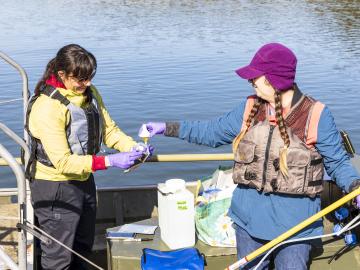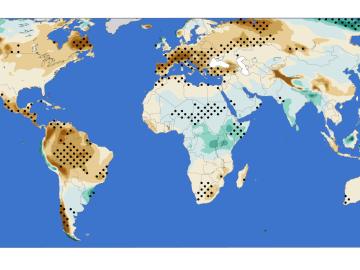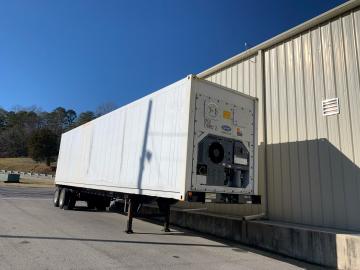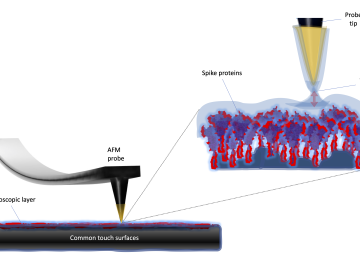
Filter News
Area of Research
- Biology and Environment (33)
- Computational Biology (1)
- Computational Engineering (2)
- Computer Science (2)
- Electricity and Smart Grid (1)
- Energy Science (85)
- Fusion and Fission (1)
- Isotopes (3)
- Materials (32)
- Materials for Computing (11)
- Mathematics (1)
- National Security (7)
- Neutron Science (11)
- Nuclear Science and Technology (5)
- Quantum information Science (1)
- Sensors and Controls (1)
- Supercomputing (25)
- Transportation Systems (2)
News Type
News Topics
- (-) Biomedical (28)
- (-) Coronavirus (28)
- (-) Grid (38)
- (-) Molten Salt (8)
- (-) Polymers (23)
- (-) Transportation (62)
- 3-D Printing/Advanced Manufacturing (82)
- Advanced Reactors (25)
- Artificial Intelligence (51)
- Big Data (25)
- Bioenergy (42)
- Biology (47)
- Biotechnology (14)
- Buildings (36)
- Chemical Sciences (48)
- Clean Water (16)
- Composites (23)
- Computer Science (105)
- Critical Materials (23)
- Cybersecurity (20)
- Education (3)
- Element Discovery (1)
- Emergency (1)
- Energy Storage (75)
- Environment (86)
- Exascale Computing (14)
- Fossil Energy (2)
- Frontier (17)
- Fusion (26)
- High-Performance Computing (44)
- Hydropower (6)
- Irradiation (2)
- Isotopes (25)
- ITER (5)
- Machine Learning (27)
- Materials (96)
- Materials Science (90)
- Mathematics (3)
- Mercury (5)
- Microelectronics (1)
- Microscopy (28)
- Nanotechnology (41)
- National Security (21)
- Neutron Science (81)
- Nuclear Energy (47)
- Partnerships (33)
- Physics (30)
- Quantum Computing (18)
- Quantum Science (42)
- Security (13)
- Simulation (19)
- Space Exploration (13)
- Statistics (2)
- Summit (30)
Media Contacts

A new Department of Energy report produced by Oak Ridge National Laboratory identifies several supply chain must-haves in maintaining the pivotal role hydropower will play in decarbonizing the nation’s grid.

Oak Ridge National Laboratory researchers collaborated with Iowa State University and RJ Lee Group to demonstrate a safe and effective antiviral coating for N95 masks. The coating destroys the COVID-19-causing coronavirus and could enable reuse of masks made from various fabrics.

University of Pennsylvania researchers called on computational systems biology expertise at Oak Ridge National Laboratory to analyze large datasets of single-cell RNA sequencing from skin samples afflicted with atopic dermatitis.

ORNL and the Tennessee Valley Authority, or TVA, are joining forces to advance decarbonization technologies from discovery through deployment through a new memorandum of understanding, or MOU.

Researchers at Oak Ridge National Laboratory are using a novel approach in determining environmental impacts to aquatic species near hydropower facilities, potentially leading to smarter facility designs that can support electrical grid reliability.

A new analysis from Oak Ridge National Laboratory shows that intensified aridity, or drier atmospheric conditions, is caused by human-driven increases in greenhouse gas emissions. The findings point to an opportunity to address and potentially reverse the trend by reducing emissions.

Researchers at ORNL used polymer chemistry to transform a common household plastic into a reusable adhesive with a rare combination of strength and ductility, making it one of the toughest materials ever reported.

Oak Ridge National Laboratory researchers have retrofitted a commercial refrigeration container designed to ensure COVID-19 vaccines remain at ultra-low temperatures during long transport and while locally stored.

A study by Department of Energy researchers detailed a potential method to detect the novel coronavirus

Oak Ridge National Laboratory has released the federal government’s new 2022 Fuel Economy Guide. The report provides the latest fuel efficiency stats and money-saving tips for new and used vehicles.


